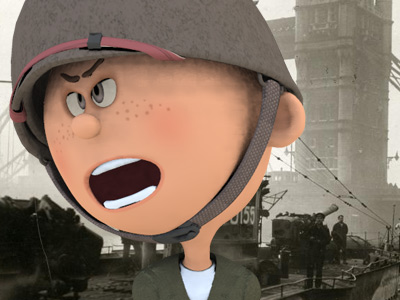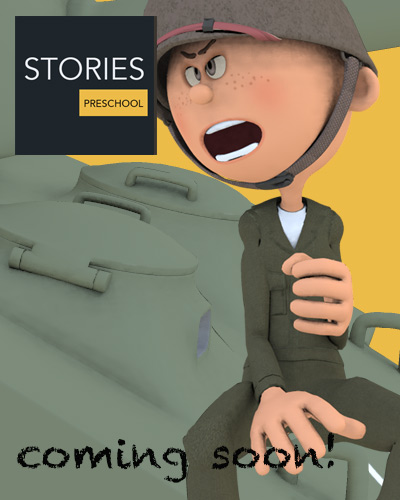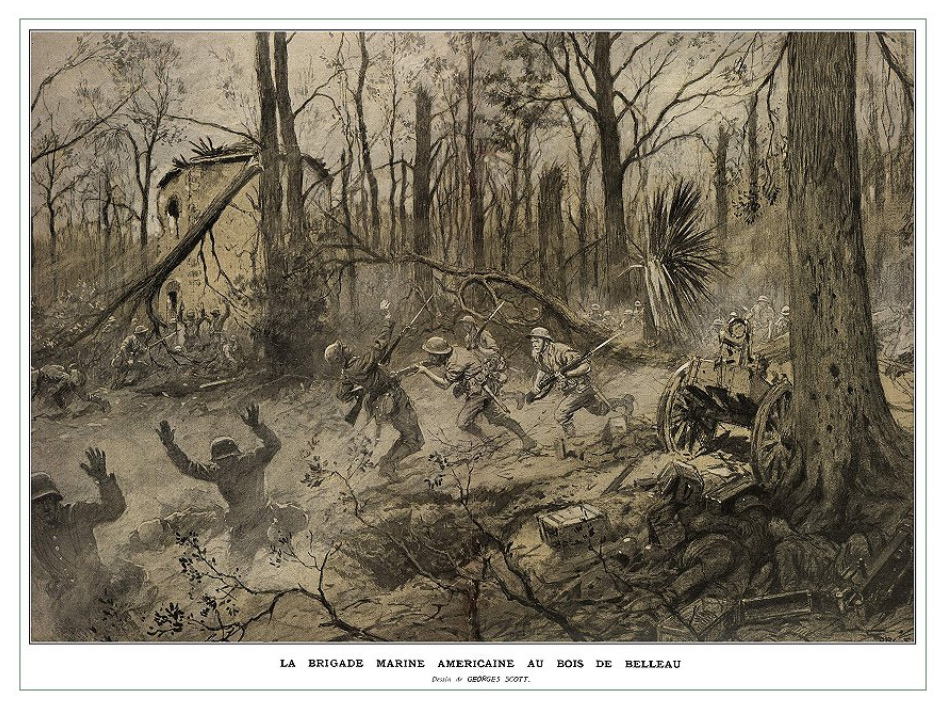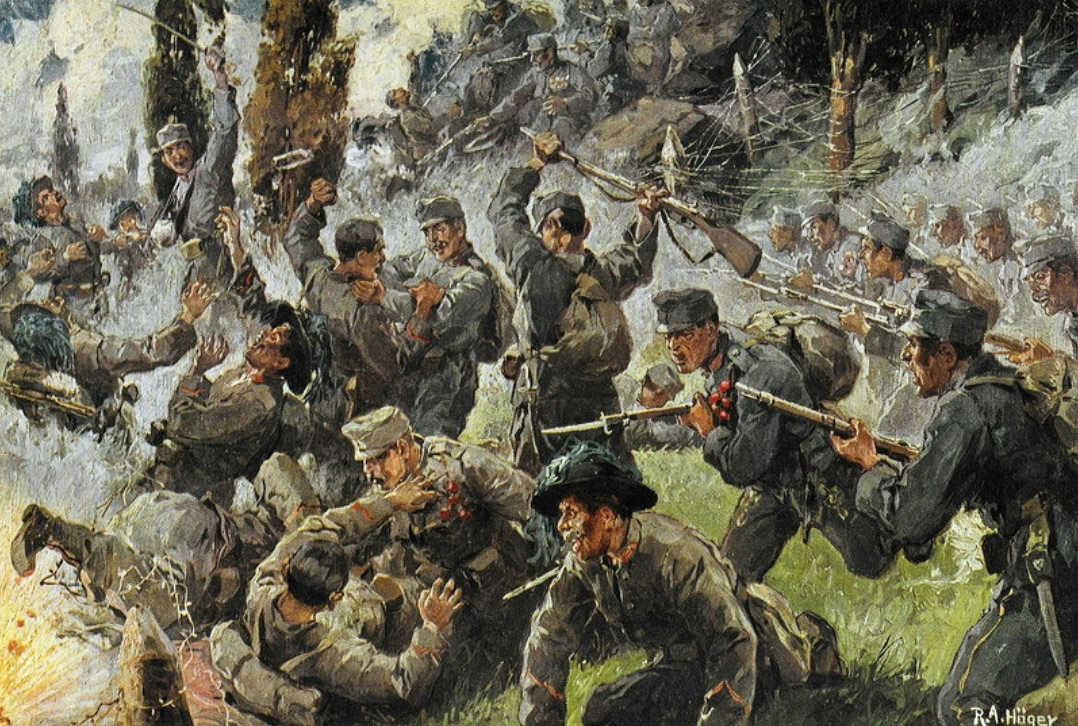World War I (1914-1918)
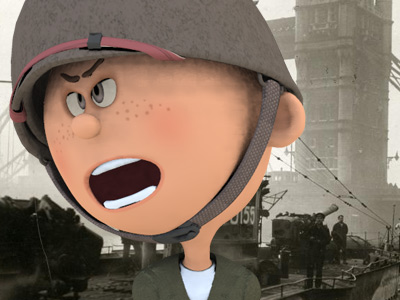
Battle of Messines
The Battle of Messines (7–14 June 1917) was conducted by the British Second Army (General Sir Herbert Plumer), on the Western Front near the village of Messines in West Flanders, Belgium Belgium, officially the Kingdom of Belgium, is a country in Northwestern Europe. The country as it exists today was established following the 1830 Belgian Revolution. Belgium has also been the battleground of European powers, earning the moniker the "Battlefield of Europe", a reputation reinforced in the 20th century by both world wars. , during the First World War. The Nivelle Offensive in April and May had failed to achieve its more ambitious aims, had led to the demoralisation of French troops and dislocated the Anglo-French strategy for 1917.
Belgium, officially the Kingdom of Belgium, is a country in Northwestern Europe. The country as it exists today was established following the 1830 Belgian Revolution. Belgium has also been the battleground of European powers, earning the moniker the "Battlefield of Europe", a reputation reinforced in the 20th century by both world wars. , during the First World War. The Nivelle Offensive in April and May had failed to achieve its more ambitious aims, had led to the demoralisation of French troops and dislocated the Anglo-French strategy for 1917.
The offensive at Messines forced the Germans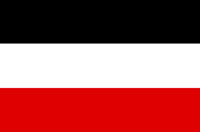 The German Empire, also referred to as Imperial Germany, the Second Reich, as well as simply Germany, was the period of the German Reich from the unification of Germany in 1871 until the November Revolution in 1918, when the German Reich changed its form of government from a monarchy to a republic. During its 47 years of existence, the German Empire became the industrial, technological, and scientific giant of Europe. to move reserves to Flanders from the Arras and Aisne fronts, which relieved pressure on the French
The German Empire, also referred to as Imperial Germany, the Second Reich, as well as simply Germany, was the period of the German Reich from the unification of Germany in 1871 until the November Revolution in 1918, when the German Reich changed its form of government from a monarchy to a republic. During its 47 years of existence, the German Empire became the industrial, technological, and scientific giant of Europe. to move reserves to Flanders from the Arras and Aisne fronts, which relieved pressure on the French French Third Republic was the system of government adopted in France from 4 September 1870, when the Second French Empire collapsed during the Franco-Prussian War, until 10 July 1940, after the Fall of France during World War II led to the formation of the Vichy government. During the 19th and 20th centuries, the French colonial empire was the second largest colonial empire in the world only behind the British Empire.. The tactical objective of the attack at Messines was to capture the German defences on the ridge, which ran from Ploegsteert (Plugstreet) Wood in the south, through Messines and Wytschaete to Mt. Sorrel, to deprive the German 4th Army of the high ground south of Ypres. The ridge commanded the British
French Third Republic was the system of government adopted in France from 4 September 1870, when the Second French Empire collapsed during the Franco-Prussian War, until 10 July 1940, after the Fall of France during World War II led to the formation of the Vichy government. During the 19th and 20th centuries, the French colonial empire was the second largest colonial empire in the world only behind the British Empire.. The tactical objective of the attack at Messines was to capture the German defences on the ridge, which ran from Ploegsteert (Plugstreet) Wood in the south, through Messines and Wytschaete to Mt. Sorrel, to deprive the German 4th Army of the high ground south of Ypres. The ridge commanded the British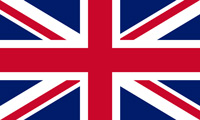 The British Empire, was composed of the dominions, colonies, protectorates, mandates, and other territories ruled or administered by the United Kingdom and its predecessor states. At its height it was the largest empire in history and, for over a century, was the foremost global power. By the start of the 20th century, Germany and the United States had begun to challenge Britain's economic lead. defences and back areas further north, from which the British intended to conduct the Northern Operation, an advance to Passchendaele Ridge and then capture the Belgian coast up to the Dutch frontier.
The British Empire, was composed of the dominions, colonies, protectorates, mandates, and other territories ruled or administered by the United Kingdom and its predecessor states. At its height it was the largest empire in history and, for over a century, was the foremost global power. By the start of the 20th century, Germany and the United States had begun to challenge Britain's economic lead. defences and back areas further north, from which the British intended to conduct the Northern Operation, an advance to Passchendaele Ridge and then capture the Belgian coast up to the Dutch frontier.
The Second Army had five corps, of which three conducted the attack and two remained on the northern flank, not engaged in the main operation; the XIV Corps was available in General Headquarters reserve. The 4th Army divisions of Gruppe Wijtschate (Group Wytschaete) held the ridge, which were later reinforced by a division from Gruppe Ypern (Group Ypres). The battle began with the detonation of 19 mines beneath the German front position, which devastated the German front line defences and left 19 large craters. This was followed by a creeping barrage 700 yd (640 m) deep, protecting the British troops as they secured the ridge with support from tanks, cavalry patrols and aircraft. The effectiveness of the British mines, barrages and bombardments was improved by advances in artillery survey, flash spotting and centralised control of artillery from the Second Army headquarters. British attacks from 8 to 14 June advanced the front line beyond the former German Sehnenstellung (Oosttaverne) line. The Battle of Messines was a prelude to the much larger Third Battle of Ypres, the preliminary bombardment for which began on 11 July 1917.
Aftermath
Historians and writers disagree on the strategic significance of the battle, although most describe it as a British tactical and operational success. In 1919, Ludendorff wrote that the British victory cost the German army dear and drained German reserves. Hindenburg wrote that the losses at Messines had been "very heavy" and that he regretted that the ground had not been evacuated; in 1922, Kuhl called it one of the worst German tragedies of the war. In 1920 Haig's Dispatches described the success of the British plan, organisation and results but refrained from hyperbole, referring to the operation as a successful preliminary to the main offensive at Ypres. In 1930, Liddell Hart thought the success at Messines inflated expectations for the Third Battle of Ypres and that because the circumstances of the operations were different, attempts to apply similar tactics resulted in failure. In 1938 Lloyd George called the battle an apéritif and in 1939, G. C. Wynne judged it to be a "brilliant success", overshadowed by the subsequent tragedy of the Battles of Passchendaele. James Edmonds, the official historian, called it a "great victory" in 1948 and Prior and Wilson (1997) called the battle a "noteworthy success" but then complained about the decision to postpone exploitation of the success on the Gheluvelt plateau. Ashley Ekins referred to the battle as a great set-piece victory, which was also costly, particularly for the infantry of II Anzac Corps, as did Christopher Pugsley, referring to the experience of the New Zealand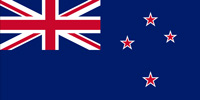 The Dominion of New Zealand was the historical successor to the Colony of New Zealand. In 1841, New Zealand became a colony within the British Empire. Subsequently, a series of conflicts between the colonial government and Māori tribes resulted in the alienation and confiscation of large amounts of Māori land. New Zealand became a dominion in 1907; it gained full statutory independence in 1947, retaining the monarch as head of state. Division. Heinz Hagenlücke called it a great British success and wrote that the loss of the ridge, had a worse effect on German morale than the number of casualties. Jack Sheldon called it a "significant victory" for the British and a "disaster" for the German army, which was forced into a "lengthy period of anxious waiting". Brown in 1996 and Simpson in 2001 concluded that extending British supply routes over the ridge, which had been devastated by the mines and millions of shells, to consolidate the Oosttaverne line and completion of the infrastructure further north in the Fifth Army area, was necessary before the Northern Operation (Third Battle of Ypres) could begin and was the main reason for the operational pause in June and July.
The Dominion of New Zealand was the historical successor to the Colony of New Zealand. In 1841, New Zealand became a colony within the British Empire. Subsequently, a series of conflicts between the colonial government and Māori tribes resulted in the alienation and confiscation of large amounts of Māori land. New Zealand became a dominion in 1907; it gained full statutory independence in 1947, retaining the monarch as head of state. Division. Heinz Hagenlücke called it a great British success and wrote that the loss of the ridge, had a worse effect on German morale than the number of casualties. Jack Sheldon called it a "significant victory" for the British and a "disaster" for the German army, which was forced into a "lengthy period of anxious waiting". Brown in 1996 and Simpson in 2001 concluded that extending British supply routes over the ridge, which had been devastated by the mines and millions of shells, to consolidate the Oosttaverne line and completion of the infrastructure further north in the Fifth Army area, was necessary before the Northern Operation (Third Battle of Ypres) could begin and was the main reason for the operational pause in June and July.
HISTORY
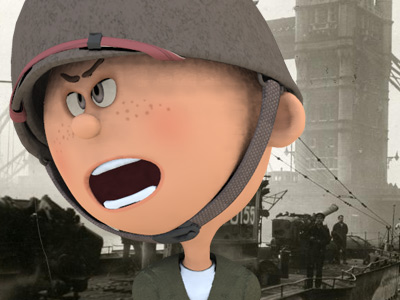
RESOURCES
This article uses material from the Wikipedia articles "World War", "World War I", and "Battle of Messines", which is released under the Creative Commons Attribution-Share-Alike License 3.0.
© Stories Preschool. All Rights Reserved.
